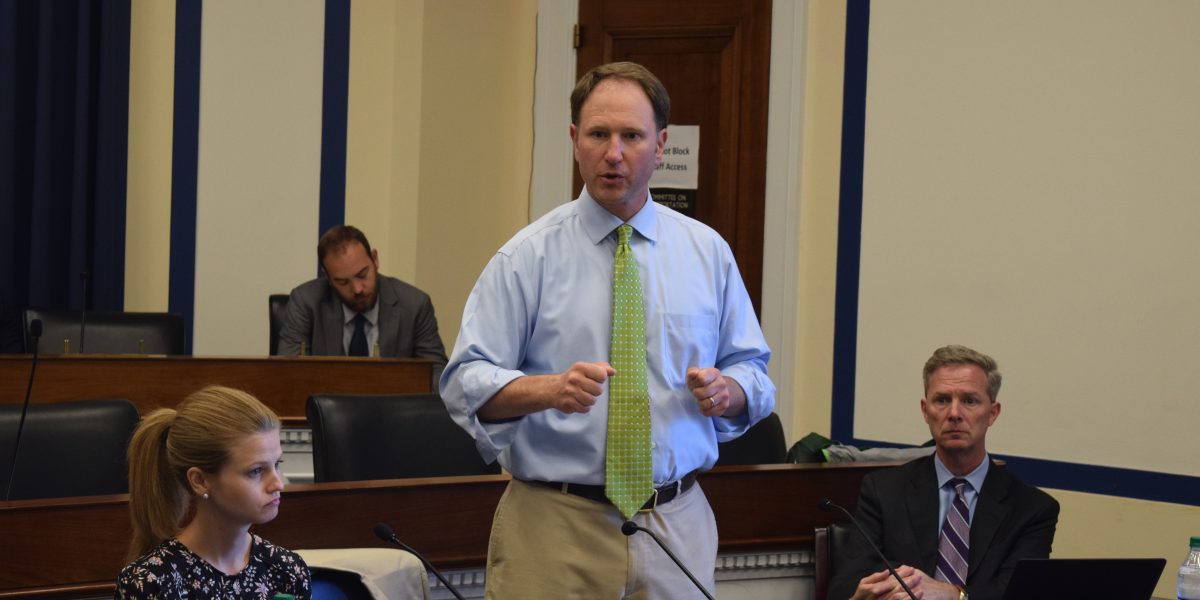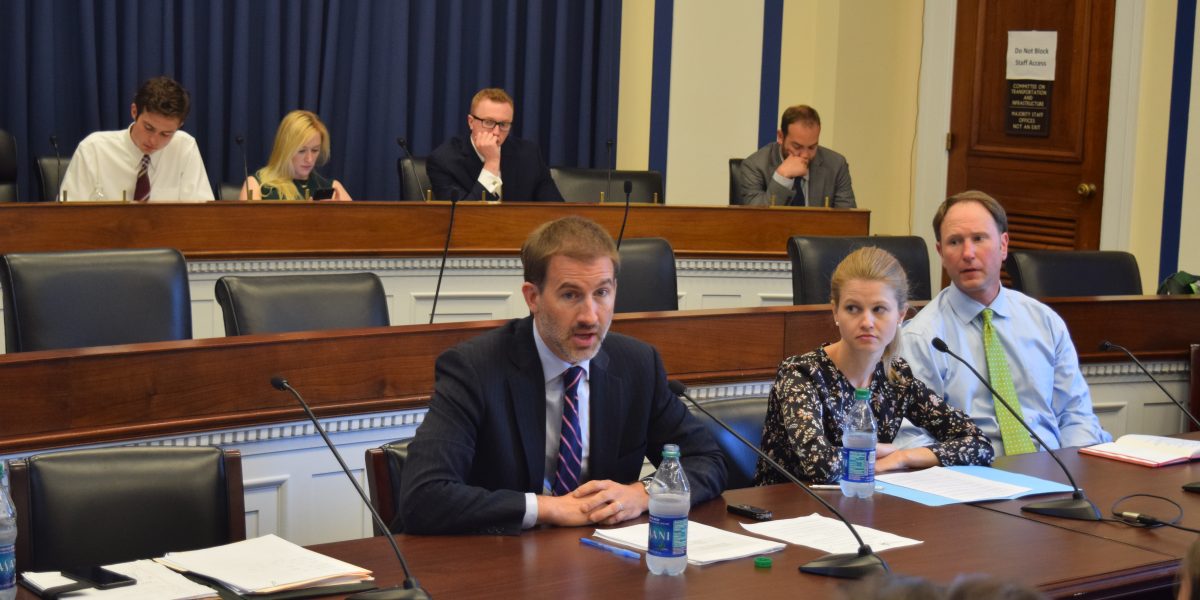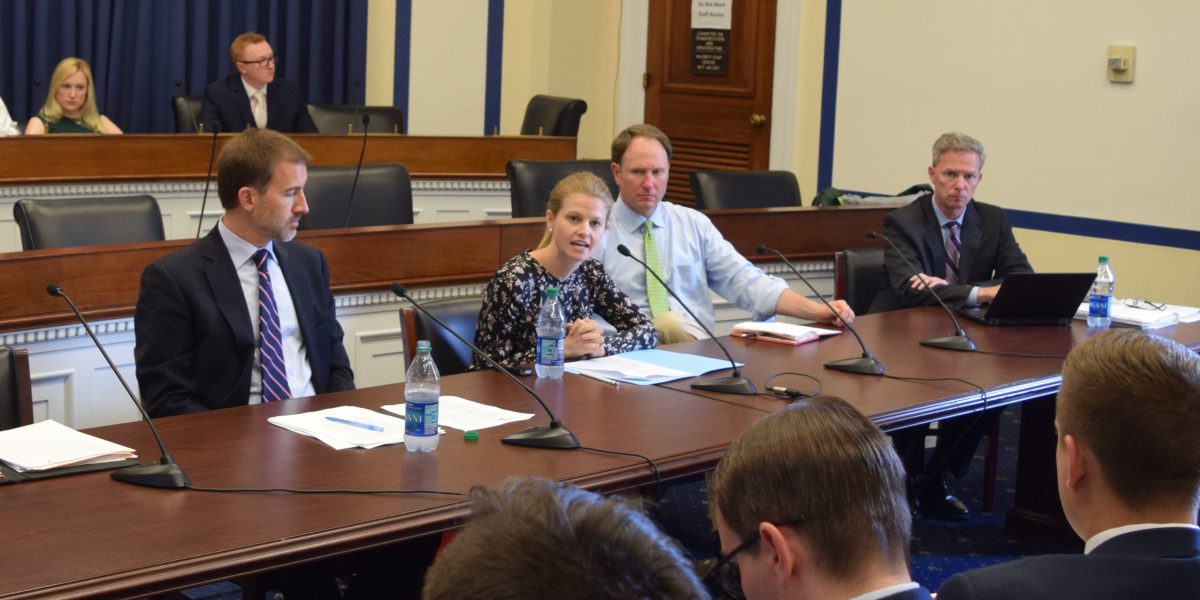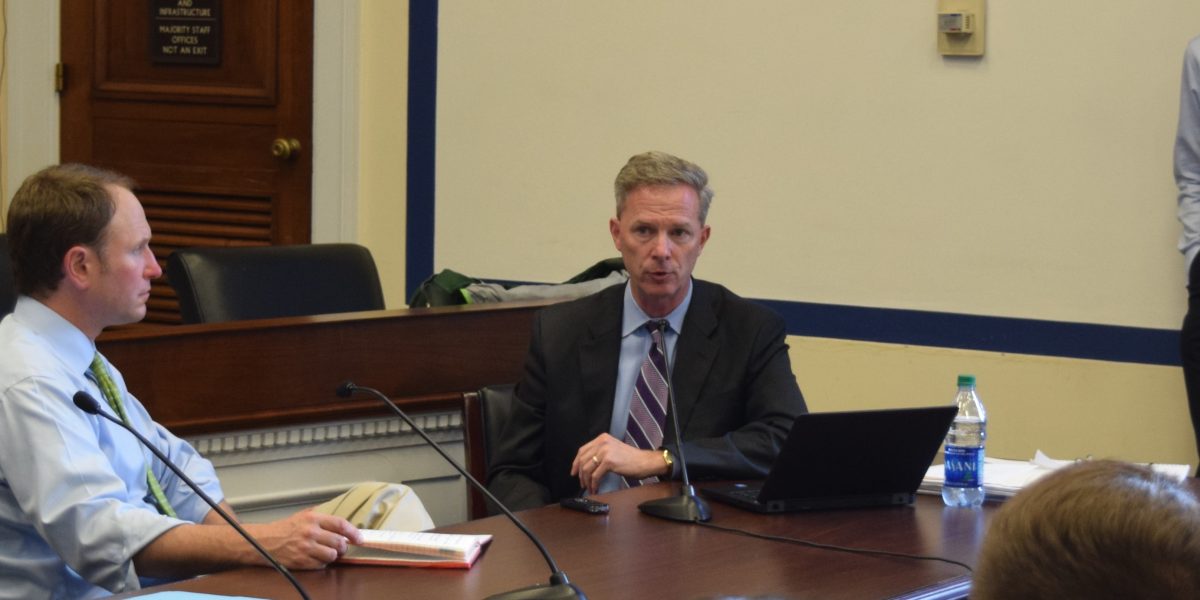BRIEFING MATERIALS:
A full audio recording of the briefing with annotated time stamps can be found here.
To view Mr. Lord’s presentation slides, click 06.06.17-GLRI-Briefing-Presentation-Chad-Lord-Healing-Our-Waters.pdf">here.
To view Ms. Tawney’s presentation slides, click 06.06.17-GLRI-Briefing-Presentation-Whitney-Tawney-Ducks-Unlimited.pdf">here.
To view Mr. Doss’ presentation slides, click 06.06.17-GLRI-Briefing-Presentation-Matt-Doss-Great-Lakes-Commission.pdf">here.
The Great Lakes Restoration Initiative (GLRI)’s success stories and impacts, as well as the challenges ahead, were the focus of a Northeast-Midwest Institute briefing on Capitol Hill on Tuesday, June 6. Great Lakes experts highlighted the GLRI’s achievements, ranging from the cleanup of toxic areas of concern and habitat restoration to sportsman and recreational issues and wide-ranging economic impacts. At the same time, possible budget cuts or even elimination under the Trump Administration’s proposed budget was cited as a major challenge to the Great Lakes’ future.
Expert speakers included: Cameron Davis, Vice President at GEI Consultants and former Senior Advisor at the Environmental Protection Agency; Chad Lord, Policy Director at the Healing Our Waters Coalition; Whitney Tawney, Senior Water Policy Advisor at Ducks Unlimited; and Matt Doss, Policy Director at the Great Lakes Commission.
Introducing the panel was Matthew McKenna, Director of the Great Lakes Washington Program at the Northeast-Midwest Institute.
- Cam Davis began the briefing by emphasizing that the GLRI is an inter-departmental program, with half of the budget going to the EPA and the other half being distributed among ten other departments and agencies, all of which also receive direct allocations. This inter-departmental dimension means that budget cuts apart from GLRI itself, which comprise the core of these departments’ funding, also threaten GLRI’s impact going forward. Mr. Davis highlighted the need for federal leadership in the funding of the GLRI, as individual states cannot pick up the slack and must receive help.
- Chad Lord’s discussion served to educate the audience about areas of concern (AOC). AOCs were designated under the 1987 Great Lakes Water Quality Agreement with Canada to focus on 43 locations in the region that required special cleanup attention. Mr. Lord noted that some direct results of the GLRI include delisting 4 AOCs, removing 50 beneficial use impairments (BUIs) at 18 AOCs in eight Great Lakes states, and remediating over 3.5 million cubic yards of contaminated sediment. Because of these success stories and the continuing success of the GLRI, Mr. Lord emphasized how crucial it was that the GLRI’s budget remains intact for the 2018 fiscal year.
- Whitney Tawney discussed the importance of the GLRI in habitat restoration and preserving sportsman activities. Ducks Unlimited (DU) focuses on enhancing, conserving, and protecting wetlands across the US and Great Lakes states. Ms. Tawney highlighted the importance of the GLRI in promoting the economy of the Great Lakes region, providing millions of jobs and recreational outdoor activities that fuel the economic health of the region. Additionally, she provided examples of how the health of the Great Lakes and the GLRI program directly relate to conservation successes such as wetland conservation, habitat restoration, and improved water quality.
- Matt Doss stressed the economic benefits of the GLRI. He noted the $5.8 trillion regional economy of the Great Lakes, the 1.5 million jobs directly connected to the Great Lakes, and the $62 billion dollars in wages related to those jobs. He also spoke to the importance of fresh surface water in the Great Lakes, noting that the region is “water-rich in an increasingly water-scarce world”. Lastly, Mr. Doss noted that some of the long-term, economic benefits from restoring the Great Lakes include over $50 billion in revenue, improved water quality, and increased property value.
Overall, the panelists made sure to stress the importance of keeping adequate funding for the GLRI due to its numerous environmental and economic successes across the Great Lakes region, whether that be in cleaning up damaged AOCs, preserving recreational outdoor activities and wildlife, or fueling the economies of the entire region, including 8 US states and 2 Canadian provinces. With the future of the GLRI on the line, the need to demonstrate the significance and importance of the program is crucial. To listen to a recording of the briefing, click 06.06.17%20GLRI%20Briefing%20--%20Full%20Audio%20Recording.MP3?dl=0">here.
This briefing was hosted by the Great Lakes Washington Program (GLWP) at the Northeast-Midwest Institute. Created to further the restoration and revitalization of the region, the GLWP improves the Great Lakes ecosystem and economy through its relationship with the bipartisan U.S. Senate and House Great Lakes Task Forces of the Northeast-Midwest Coalitions, as well as its outreach and interaction with state, provincial, and federal agencies, experts, and stakeholders. By conducting and providing non-partisan federal policy research and background, and tracking legislation, the GLWP serves as a trusted source for the region on Great Lakes issues. You can read more about the GLWP here.
UPCOMING BRIEFINGS:
The GLWP will co-host a briefing on Tuesday, June 13 on Manufacturing and Job Growth in the Midwest. The briefing will feature remarks for Senator Bob Casey (PA) and Representative Marcy Kaptur (OH-09). For more information and to register, please click here.



